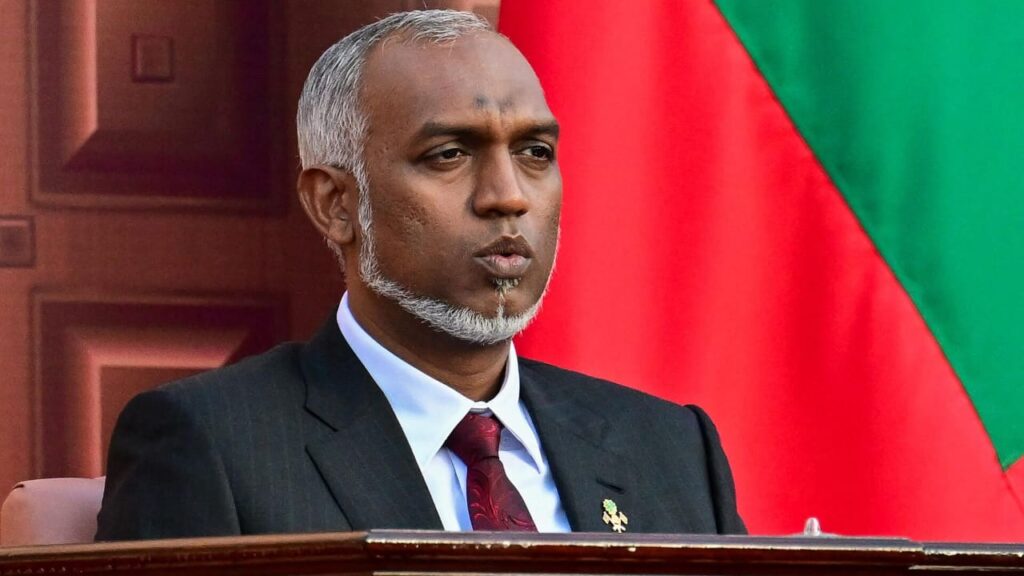The issue has been discussed between Mohamed Muizzu, the recently elected president of the Maldives, and India’s Earth Sciences Minister Kiren Rijiju. What is the background behind this request?

What did actually happen?
According to a statement released by his office on Saturday (November 18), Mohamed Muizzu, the recently elected President of the Maldives, has “formally requested” that the Indian government “withdraw its military personnel” from the nation.
The President added that during the September presidential election, he was hopeful that India will respect the democratic decision of the people of the Maldives, the Maldivian people gave him a strong mandate to make the request. Says a statement from the President’s office.
It’s also rumored that he spoke with India’s Earth Sciences Minister Kiren Rijiju, who showed up at Muizzu’s swearing-in event on Friday.
As this “serves the interests of the people of Maldives,” it was “agreed” that the “two governments would talk about workable solutions for ongoing cooperation” through the usage of these platforms, according to sources in the Indian government, confirming that the President had brought up the issue of Indian military personnel present in the Maldives for operating aircraft for medical evacuation along with counter-drug trafficking purposes during his meeting with Rijiju.
What is the background of this request and how does it fit into the overall framework of India-Maldives relations?
Mohamed Muizzu: who is he?
Muizzu was victorious in October’s presidential election, coinciding with a broader national discourse over the influence of foreign forces.
The Maldives is a small nation of islands in the Indian Ocean that is home to around 500,000 people. China has been trying to strengthen ties with it for the past ten or so years. China’s growth and power projection, particularly in South Asia, occurred during this time.
Geopolitical neutrality?
India has always seen the Maldives as a part of the nation’s regional area of influence. For a long time, India and the Maldives had tight connections under the dictator Maumoon Abdul Gayoom. Since his loss in the 2008 elections, foreign policy has played a significant role in the campaigns of the incoming leaders.
Mohamed Nasheed from the Maldivian Democratic Party (MDP) was victorious in 2008. The MDP was perceived as being pro-Indian, notably Nasheed, one of its major leaders. China was perceived as a surrogate for his opponent, Abdulla Yameen, of the Progressive Party of the Maldives (PPM). He assumed office in 2013. and left in 2018.
Yamen included the Maldives in the Belt and Road Initiative (BRI) of China during this period. China claims that as part of it, it aims to contribute financial and other technological assistance for the construction of infrastructure, including as ports, trains, and highways, in order to improve connectivity and commerce. The initiative has also been interpreted as China’s desire to exert more power throughout Asia and Africa.



